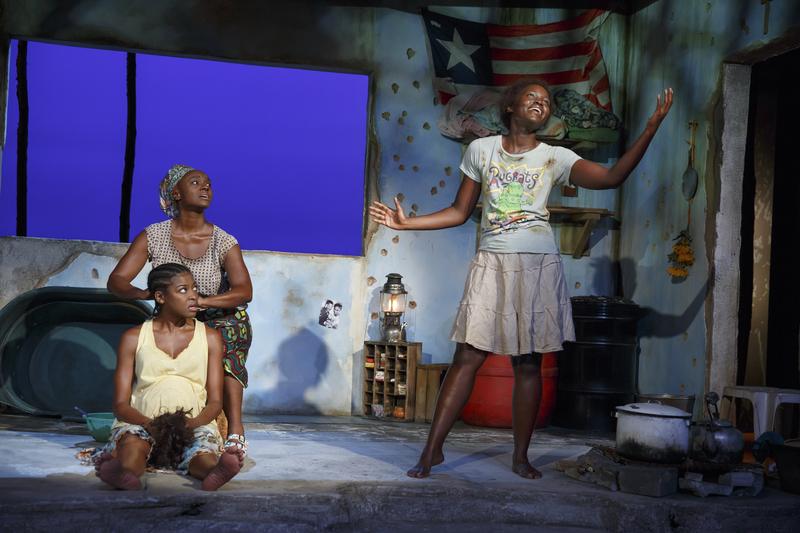
When we first meet The Girl in Danai Gurira's powerful "Eclipsed" at the Public Theater, she is wearing a Rugrats t-shirt and an expression of optimism. Even though she's standing in a dilapidated shack in the middle of a rebel camp in Liberia, she's hopeful about her future. We never learn her name.
"I want to do something with myself, be a doctor or member of Parliament of something," she tells Wife Number 1 and Wife Number 3. She is about 15 and has just escaped violence in the countryside; the two older women are hiding her under a wash tub so that she won't be discovered by the commanding officer (never seen) who uses all his "wives" for sex.
But he does find her. And as played by Lupita Nyong'o, there is an extraordinary moment when she walks across the stage to wash herself after she is raped for the first time. Her walk, formerly buoyant, is now tentative and heavy. There is some fear there, and denial, and a new understanding of how vulnerable she is as a girl in a war zone.
In that one act that we never see, her childhood has been crushed. And for the rest of the play, she struggles to find her way into adulthood. Will she go along to get along, like Wife Number 1 (Saycon Sengbloh)? Will she be sassy and playful like Wife Number 3 (the feisty Pascale Armand)? Or will she pick up a rifle like Wife Number 2 (Zainab Jah) and kill others to protect herself?
It's dark, intense stuff. And yet director Liesl Tommy also brings out the lightness and the humanity. The five characters (there is also an international peacemaker played by Akosua Busia) rely on each other, provoke each other, tease each other. The story's main tension comes not from the looming brutality of the unseen men around them, but the very different ways the women choose to survive the war. They all passionately want The Girl to choose their way — but it is clear that none of the ways is optimal. No one can win until there is no war — and even then, the damage may have been done.
